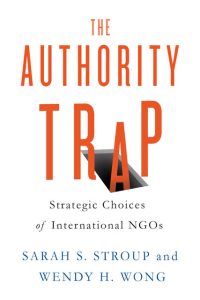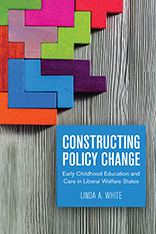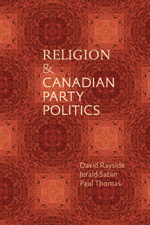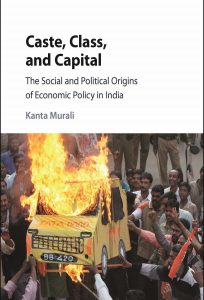
Interviewing in Social Science Research: A Relational Approach
What is interviewing and when is this method useful? What does it mean to select rather than sample interviewees? Once the researcher has found people to interview, how does she build a working relationship with her interviewees? What should the dynamics of talking and listening in interviews be? How do researchers begin to analyze the narrative data generated through interviews?
Lee Ann Fujii explores the answers to these inquiries in Interviewing in Social Science Research, the latest entry in the Routledge Series on Interpretive Methods. This short, highly readable book explores an interpretive approach to interviewing for purposes of social science research. Using an interpretive methodology, the book examines interviewing as a relational enterprise. As a relational undertaking, interviewing is more akin to a two-way dialogue than a one-way interrogation. Fujii examines the methodological foundations for a relational approach to interviewing, while at the same time covering many of the practical nuts and bolts of relational interviewing. Examples come from the author’s experiences conducting interviews in Bosnia, Rwanda, and the United States, and from relevant literatures across a variety of social scientific disciplines. Appendices to the book contain specific tips and suggestions for relational interviewing in addition to interview excerpts that give readers a sense of how relational interviews unfold.
This book will be of great value to graduate students and researchers from across the social sciences who are considering or planning to use interviews in their research, and can be easily used by academics for teaching courses or workshops in social science methods.

The Authority Trap – Strategic Choices of International NGOs
Not all international nongovernmental organizations (INGOs) are created equal, Some have emerged as “leading INGOs” that command deference from various powerful audiences and are well-positioned to influence the practices of states, corporations, and other INGOs. Yet Sarah S. Stroup and Wendy H. Wong make a strong case for the tenuous nature of this position: in order to retain their authority, INGOs such as Greenpeace, Oxfam, and Amnesty International refrain from expressing radical opinions that severely damage their long-term reputation. Stroup and Wong contend such INGOs must constantly adjust their behavior to maintain a delicate equilibrium that preserves their status.
Activists, scholars, and students seeking to understand how international organizations garner and conserve power—and how this affects their ability to fulfill their stated missions—will find much of value in The Authority Trap. The authors use case studies that illuminate how INGOs are received by three main audiences: NGO peers, state policymakers, and corporations. In the end, the authors argue, the more authority an INGO has, the more constrained is its ability to affect the conduct of world politics.

The Oxford Handbook of Thucydides
The Oxford Handbook of Thucydides contains newly commissioned essays on Thucydides as an historian, thinker, and writer. It also features chapters on Thucydides’ intellectual context and ancient reception. The creative juxtaposition of historical, literary, philosophical, and reception studies allows for a better grasp of Thucydides’ complex project and its intellectual context, while at the same time providing a comprehensive introduction to the author’s ideas. The volume is organized into four sections of papers: History, Historiography, Political Theory, and Context and Reception. It therefore bridges traditionally divided disciplines. The authors engaged to write the forty chapters for this volume include both well-known scholars and less well-known innovators, who bring fresh ideas and new points of view. Articles avoid technical jargon and long footnotes, and are written in an accessible style. Finally, the volume includes a thorough introduction prefacing each paper, as well as several maps and an up-to-date bibliography that will enable further study. The Oxford Handbook of Thucydides offers a comprehensive introduction to a thinker and writer whose simultaneous depth and innovativeness have been the focus of intense literary and philosophical study since ancient times

Constructing Policy Change: Early Childhood Education and Care in Liberal Welfare States
In Constructing Policy Change, Linda A. White examines the expansion of early childhood education and care (ECEC) policies and programs in liberal welfare states, including Australia, Canada, New Zealand, the UK, and the USA.
In the first part of the book, the author investigates the sources of policy ideas that triggered ECEC changes in various national contexts. This is followed by a close analysis of cross-national variation in the implementation of ECEC policy in Canada and the USA. White argues that the primary mechanisms for policy change are grounded in policy investment logics as well as cultural logics: that is, shifts in public sentiments and government beliefs about the value of ECEC policies and programs are rooted in both evidence-based arguments and in principled beliefs about the policy.
A rich, nuanced examination of the reasons motivating ECEC policy expansion and adoption in different countries, Constructing Policy Change is a corrective to the comparative welfare state literature that focuses on political interest alone.

Canada’s Odyssey: A Country Based on Incomplete Conquests
150 years after Confederation, Canada is known around the world for its social diversity and its commitment to principles of multiculturalism. But the road to contemporary Canada is a winding one, a story of division and conflict as well as union and accommodation.
In Canada’s Odyssey, renowned scholar Peter H. Russell provides an expansive, accessible account of Canadian history from the pre-Confederation period to the present day. By focusing on what he calls the “three pillars” of English Canada, French Canada, and Aboriginal Canada, Russell advances an important view of our country as one founded on and informed by “incomplete conquests”. It is the very incompleteness of these conquests that have made Canada what it is today, not just a multicultural society but a multinational one.
Featuring the scope and vivid characterizations of an epic novel, Canada’s Odyssey is a magisterial work by an astute observer of Canadian politics and history, a perfect book to commemorate the 150th anniversary of Confederation.

Religion and Canadian Party Politics
Religion is usually thought of as inconsequential to contemporary Canadian politics. Religion and Canadian Party Politics takes a hard look at just how much or how little influence faith continues to have in federal, provincial, and territorial political arenas.
Drawing on case studies from across the country, this book explores the three axes of religiously based contention that have been most influential in Canada. Historically, denominational distinctions between Catholics and Protestants shaped party oppositions across several regions. Since the 1960s, as religiosity experienced a steep decline, a newly politicized divide opened between religious conservatives and political reformers. Then since the 1990s, sporadic controversy has centred on the political and legal recognition of non-Christian religious minority rights. Although the extent of partisan engagement with each of these sources of contention has varied across time and region, this book shows that religion still matters in shaping party politics.
This detailed look at the play of religiously based conflict and accommodation in Canada fills a large gap and pulls us back from overly simplified comparisons with the United States.
More broadly, this book also compares the role of faith in politics in Canada to that of other Western industrialized societies.

Policy Work in Canada: Professional Practices and Analytical Capacities
Policy Work in Canada is an in-depth study into the levels of analytical capacity found within the federal and provincial governments as well as the non-governmental sector. By focusing on the individuals who craft public policy in Canada, this collection of eighteen chapters broadens and deepens our understanding of policy development in Canada.
The contributors to this volume empirically examine such topics as: the inherent characteristics of sophisticated policy analysis, the constraints that influence the outcome or style of analysis, the influence of policy analysis on democratic debate and lessons that can be learned from different jurisdictions within and outside of Canada. Policy Work in Canada provides a pathway for academics and public mangers alike to meet the challenges involved in crafting more nuanced and sophisticated public policy head-on.

Making a Global City: How One Toronto School Embraced Diversity
Half of Toronto’s population is born outside of Canada and over 140 languages are spoken on the city’s streets and in its homes. How to build community amidst such diversity is one of the global challenges that Canada – and many other western nations – has to face head on. Making a Global City critically examines the themes of diversity and community in a single primary school, the Clinton Street Public School in Toronto, between 1920 and 1990. From the swift and seismic shift from a Jewish to southern European demographic in the 1950s to the gradual globalized community starting in the 1970s, Vipond eloquently and clearly highlights the challenges posed by multicultural citizenship in a city that was dominated by Anglo-Protestants. Contrary to recent well-documented anti-immigrant rhetoric in the media, Making a Global City celebrates one of the world’s most multicultural cities while stressing the fact that public schools are a vital tool in integrating and accepting immigrants and children in liberal democracies.

Aftershocks: Great Powers and Domestic Reforms in the Twentieth Century
Over the past century, democracy spread around the world in turbulent bursts of change, sweeping across national borders in dramatic cascades of revolution and reform. Aftershocks is the first book to offer a detailed explanation for this wavelike spread and retreat—not only of democracy but also of its twentieth-century rivals, fascism and communism. Seva Gunitsky argues that waves of regime change are driven by the aftermath of cataclysmic disruptions to the international system. These hegemonic shocks, marked by the sudden rise and fall of great powers, have been essential and often-neglected drivers of domestic transformations. Though rare and fleeting, they not only repeatedly alter the global hierarchy of powerful states but also create unique and powerful opportunities for sweeping national reforms—by triggering military impositions, swiftly changing the incentives of domestic actors, or transforming the basis of political legitimacy itself. As a result, the evolution of modern regimes cannot be fully understood without examining the consequences of clashes between great powers, which repeatedly—and often unsuccessfully—sought to cajole, inspire, and intimidate other states into joining their camps.

Caste, Class, and Capital – The Social and Political Origins of Economic Policy in India
For millions of poor people in the developing world, economic growth offers prospects for improved well-being. But what are the political and social conditions conducive to growth-oriented policies in poor democracies? This book addresses this highly consequential question by focusing on a specific empirical puzzle – policy variation across Indian states in the competition for private industrial investment, a phenomenon that came to the fore after the country adopted market reforms in 1991. Through the analysis of investment policies, this book offers a novel explanation, which links social identity, class, and economic policy outcomes. Its main findings highlight a link between pro-business policies and exclusionary political trends in India’s high growth phase, and offer a sobering perspective on the current model of growth in the country. It adds to our understanding of Indian political economy as well as to the dynamics of economic development in poor democracies.